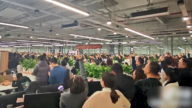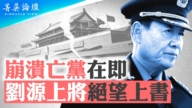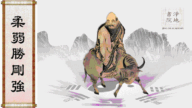【新唐人2014年03月21日讯】近几个月,国际大型连锁超市“沃尔玛”集团,突然关闭在中国各地的十多家分店,各地员工因不满店方的安置方案,连续几天集体罢工,并在店外拉起横幅抗议。周四上午,安徽省马鞍山“沃尔玛”一些员工因拉横幅抗议被抓捕。湖南常德“沃尔玛”工会主席也因替员工维权“被喝茶”警告。
“中国劳动关系学院”教授王江松,3月19号发布一篇题为“常德沃尔玛关店引起的劳资冲突正在升级”的博文,他说,世界500强“沃尔玛”要关常德水星楼分店,遭遇劳工权利制衡,全店员工在工会主席的带领下奋起维权。
文章说,常德商务局长率队为资方保驾护航,并叫嚣要调警察前来抓人。挺身履职的工会主席黄兴国,签署委托书给副主席说:我若进去了,你继续!
3月20号中午12点多,《新唐人》致电常德“沃尔玛”工会主席黄兴国,询问详细情况。
湖南常德沃尔玛工会主席黄兴国:“我刚从派出所出来,辖区的政法委书记和我在做警示性谈话,告诉我,我们的行为已经违法了,人员在卖场阻碍了公共秩序,要我赶快召集正面的宣传,大家撤离经营场所。”
黄兴国说,政法委还要他个人保证,他所领导的维权小组停止一切违法的行为,走合法维权的道路。他表示,他们的员工只是在店里维权,不存在违法。
黄兴国介绍,3月5号,他们这家“沃尔玛”分店向职工发出通知,宣布3月19号停止营业,正式关店。100多名职工不满,他就带领职工们维权。
黄兴国:“这家商场在3月19号正式关门,然后在当日,就是由外边的员工替代了现有的员工,员工认为这是对自己人权的侵犯。因为大家都是劳动者,现有的员工能够胜任现在的工作,所以大家不接受企业单方面解除劳动合同的安置方案。”
王江松说,“沃尔玛”在中国有400多家店,它凭借国际品牌的优势,进驻了中国市场,它挣钱有“奇招”,一旦这个店赚的钱差不多了,它就关掉再开新店。
中国劳动关系学院教授王江松:“刚开始的时候它是凭借劳动力廉价优势,但是劳工现在物价上涨,需求也在提高,工资福利的要求,还有权利意识都在提高,然后它就以关旧店,来开新店,不断开新店的方式,来继续它的资本运作。”
王江松说,这样的话,它是以牺牲劳工的权益,来获得它利润的最高化,这是它的一个经营战术。
王江松:“去年它关了十几家店,有个别店的员工是反抗了,但是大部分店都没有反抗,就这样被他们给踢掉了,但今年这个情况不一样,今年已经从常德店,到马鞍山店,这些工人都起来维权了。”
王江松说,20号上午,安徽“马鞍山沃尔玛”的员工拉横幅抗议被裁员,大批特警赶到现场,抓走几名员工,还把其他员工全部从店内赶出去,大部分员工都是女性。
记者致电“马鞍山沃尔玛”询问详细情况。接线员说,她们都是从其他店调过来,不了解情况﹔记者又致电“沃尔玛深圳总部”,接线员告诉记者一个北京号码,但记者多次拨打无人接听。
王江松分析,“沃尔玛”关店肯定是总部的意思,但国家对于企业关店、闭场没有明文规定,他们就以合法关店的方式,把许多员工进行经济性裁员。
王江松:“他们都是单方面宣布关店,不通过工会和员工大会的通过,也不按照法律提前一个月通知,然后就宣布关店,给一个很低的安置条件,然后把这些人赶走,这些人可能在沃尔玛工作十几年,他一系列的待遇包括保险等等,都成了问题﹗”
王江松说,这些被裁员的员工找过商务局,也找过劳动纠察大队,找过劳动局,和总工会,他们不仅不管,还支持“沃尔玛关店”,并派警察抓人。
采访编辑/李韵 后制/舒灿
Chinese Wal-Mart Employees Protest Layoffs
Wal-Mart, the world’s largest retailer, abruptly closed
more than 10 stores in China in recent months.
Laid-off workers began to protest the settlement.
For days, banners and protestors were seen outside
of local stores.
On Thursday morning, several Wal-Mart employees
at the Maanshan branch in Anhui Province were arrested
during the protest.
Also, Wal-Mart Union president at the Changde store
in Hunan Province was invited to “have tea" –an expression
meaning an interrogation and a warning— with the police
for his support of the protest.
Professor at China Institute of Industrial Relations,
Wang Jiangsong, posted a March 19 blog regarding
the escalating capital-labor caused by the closing
of Wal-Mart chain stores in China.
He took the Changde Wal-Mart store in Hunan Province
as an example, where the Union President
led all store employees in a labor rights
protest against the closing of Wal-Mart.
He stated that the Secretary of Changde Commercial
Bureau defended the company and claimed
to have dispatched police to arrest the protestors.
Wal-Mart Union President of Changde, Huang Xingguo
signed a power of attorney to the Vice President and said,
“If I am arrested, you’ll continue!"
At noon on March 20, NTD called Huang Xingguo,
Wal-Mart Union President of Changde.
Huang Xingguo, Wal-Mart Union President of Changde:
“I just came back from the police station.
The district Political and Legal Affairs Committee secretary
warned me that our behaviors have violated the laws,
saying that the employees have hampered
with public order at the store.
He wanted me to conduct positive talks to encourage
everyone to leave the premises."
The Political and Legal Affairs Committee demanded
that Huang Xingguo personally guarantee his team
will stop all “illegal" activities, however, Huang argued
that the protests at the store are legal.
On March 5, at the Changde Wal-Mart branch Huang
Xingguo issued a notice of store closing on March 19.
He led the protest because more than 100 store workers
were displeased with the announcement.
Huang Xingguo: “This store closed on March 19.
But, on the same day, workers from elsewhere
came to replace the previous employees.
Our employees feel their rights have been violated.
We are all capable laborers able to fulfill our duties.
We refused to accept this unilateral termination
by corporate."
Wang Jiangsong said, “There are more than 400 Wal-Mart
chain stores in China.
They are stationed in the Chinese market taking
advantage of internationalism.
They make money by closing a store that was earning
enough and opening the new one."
Wang Jiangsong, Professor of China Institute
of Industrial Relations:
“At the beginning it (Wal-Mart) was taking advantage
of cheap labor.
But the demands are higher due to inflation, so are the wages
and benefits, as well as consciousness of the worker’s rights.
So, now they continue the capital operation by closing
old stores and opening new ones, one after another."
Wang Jiangsong explains that Wal-Mart China has operated
with the tactic of profitting at the expense of labor rights.
Wang Jiangsong: “Last year they closed more than 10 stores.
Some (employees) voiced their resistance, but the majority
did not and got kicked out.
But, this year, it’s different.
Employees started to protest from Changde to Maanshan."
Wang Jiangsong says that Maanshan branch employees
protested on March 20 due to lay offs.
A large number of special police rushed to the scene
and arrested several employees.
The rest were expelled from the store,
the majority being women.
Our reporter called the Maanshan Walmart
to ask for details.
The operator explained they were transferred over from other
stores and were unaware of the situation.
The reporter tried Wal-Mart’s headquarters in Shenzhen
but was given another number in Beijing.
However, no one answered the call in Beijing.
Wang Jiangsong believes closing a local branch
is definitely the decision of the headquarters.
Since there‘s no clear regulation in China regarding shutting
down stores, closing stores has become a legal way
to conduct layoffs for financial reasons.
Wang Jiangsong: “They unilaterally declared the store closing
without any discussion with the Union
or the employees, or following the one month’s
advance notice in accordance with the law.
Once the store is closed, with a very low settlement,
workers who have worked for Wal-Mart for years
would encounter issues of benefits, insurance,
and more."
Wang Jiangsong indicates that these laid off workers
have sought help from Business Bureau, Labor Picketing
Battalion, Bureau of Labor, and Trade Unions.
However, rather than providing support, these units assist
Wal-Mart by calling police to arrest the workers.
Interview & Edit/Li Yun Post-Production/Shu Can




























